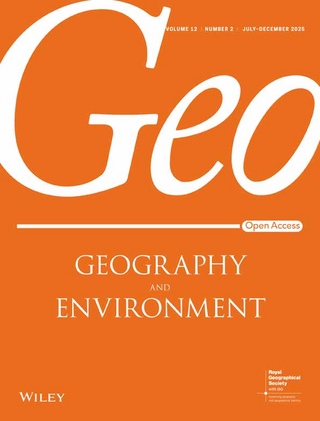
Adapting to uncertainty: knowing shifting sands and blue infrastructure in unpredictable seas
Schüpf, Dennis / Jonas HeinExterne Publikationen (2025)
in: Geo: Geography and Environment 12 (2), article e70041
DOI: https://doi.org/10.1002/geo2.70041
Open access
Along the southern coast of India, hard protective infrastructure has become the default response to increasingly frequent cyclones and severe coastal erosion. However, such interventions not only intensify erosion by disrupting sand movement, but also obscure its root causes, which are often contested through diverging narratives and knowledge claims about the sand and the sea. Making use of the burgeoning literature on ‘geosociality’ and ‘situated knowledges’, this paper interrogates how knowledge about coastal dynamics is produced, legitimised and contested in shaping these protective measures. Drawing on multi-sited ethnographic fieldwork, including interviews and participant observation among ocean engineers, policymakers and artisanal fishers, we unravel the diverging and oftentimes contested epistemologies that shape how uncertain coastal futures are navigated. By examining the social entanglements with geomorphic processes such as sand movement and erosion, we show how different forms of knowledge adapt to the unpredictability of the sea, yet with uneven socio-spatial consequences, particularly for artisanal fishers. We argue that coastal protection practices are embedded in epistemic hierarchies that prioritise technical expertise and predictive science, rendering fishers' situated knowledges less legitimate in decision-making. By situating both livelihood practices and scientific modelling within their social and epistemic contexts, we demonstrate how confronting uncertainty can challenge power asymmetries that shape knowledge production. Rather than defaming engineering knowledge, we call for complementary approaches that recognise uncertainty, complexity and the value of co-produced knowledge. Situating fishers' knowledges alongside modelling practices provides openings for re-politicising adaptation and rethinking whose expertise counts in shaping coastal futures.


